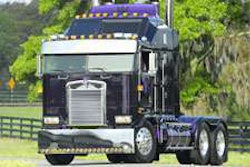Fees for one- and two-truck operations nearly doubled as the Federal Motor Carrier Safety Administration yesterday, April 27, issued a final rule on annual registration fees and a fee bracket structure for the Unified Carrier Registration (UCR) Agreement for the 2010 calendar year. The rule, effective immediately, was published in the Federal Register.
The minimum fee, which applies to a one-truck operation or to a broker or freight forwarder, will go from $39 to $76. The 2010 fees are: 1-2 trucks, $76; 3-5 trucks, $227; 6-20 trucks, $452; 21-100 trucks, $1,576; 101-1,000 trucks, $7,511; and 1,001 and more, $73,346.
The fee increases under the final rule are slightly less than the hike in FMCSA’s Notice of Proposed Rulemaking published last September, which used a factor of 2.22. After evaluating comments that opposed inclusion of administrative expenses and a revenue reserve, FMCSA concluded that it was statutorily required to include the administrative expenses, but decided to remove the revenue reserve component from the fee calculations in the final rule.
The agency said several factors drove the need to increase fees to provide the $113 million necessary to provide states with the revenues they received under the Single State Registration System. One was a change in federal law in 2008 that eliminated trailers from the calculation; that change alone required an increase in fees to maintain the revenue even if every single carrier complied, FMCSA said.
But compliance with the registration requirement has been far from 100 percent. Between 80 and 90 percent of carriers operating 100 or more trucks have registered under UCR, but the compliance rate among brokers and freight forwarders is only 16 percent, and fewer than 60 percent of single-truck operations have registered; in 2008, the overall compliance rate was 62.5 percent.
While industry representatives on the UCR board believe the fees should continue to be based on 100 percent compliance, FMCSA chose a compliance rate of about 86 percent. And on top of those concerns was a phenomenon FMCSA calls “bracket shift,” where carriers end up registering fewer trucks than anticipated based on the federal database.
In comments filed for the NPRM, state enforcement agencies generally supported the fee increase, while the trucking industry generally opposed it. The American Moving & Storage Association strongly opposed the fee proposal as “excessive, inappropriate [and] unwarranted.’’ UPS said the proposed fees represented an “unreasonable rate of increase.”
The Truckload Carriers Association opposed the proposal because it would “negatively affect the motor carrier industry in order to subsidize both noncompliant motor carriers and the states that will not put forth the effort to increase UCRA [UCR Agreement] compliance.’’
The Transportation Intermediaries Association called FMCSA’s analysis flawed. The American Trucking Associations and TIA both faulted the NPRM for giving an impression of “illusory precision,’’ arguing that “the unwarranted show of accuracy covers much guesswork and some arbitrary assumptions.’’
Some comments argued that sharply increased fees would increase noncompliance, creating a future spiral of state revenue shortfalls and requests for yet higher fees. But FMCSA said the final rule provides suitable incentives for states to ramp up enforcement on noncompliant entities “so that they can achieve the full amounts to which they are entitled.”
FMCSA, however, did eliminate the revenue reserve component from the fee increase. ATA said a reserve fund request was unsupported by statute that and the concept “belies the assumed precision that underlies the rest of the fee proposal.” FMCSA said that after three years of experience administering the fees, it “believes that the initial uncertainties prompting inclusion of a revenue reserve have diminished.”
To view the final rule and comments, go to www.regulations.gov. The docket is FMCSA-2009-0231.









